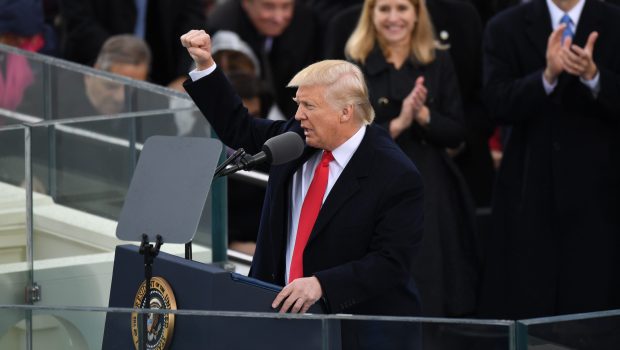Can Donald Trump Run Again in 2028? How U.S. Presidential Terms Work

The 45th president becomes the 47th President of the United States, making him only the second to win a nonconsecutive term. Here’s a look at his eligibility for the next presidential term.
Donald Trump is the 47th President of the United States.
The Republican president-elect defeated Vice President Kamala Harris in the 2024 race for the White House after securing both the popular vote and the electoral vote. He then addressed his supporters on Wednesday morning, vowing to lead the “golden age of America” after launching the “greatest political movement of all time.”
Until Trump’s victory this week, Grover Cleveland was the only president to serve non-consecutive terms. But does this unique situation allow him to run for a third term? Here’s a look at how presidential terms work.
Can Trump Run Again in 2028?
The 22nd Amendment of the U.S. Constitution limits a president to two terms in office, including non-consecutive terms. As a result, the next four years will be the final time Trump can hold the nation’s highest office.
According to the Ronald Reagan Presidential Library and Museum, George Washington, the first U.S. president, set the precedent by stepping down after two terms. This unofficial limit was observed by every president after Washington, until Franklin D. Roosevelt, who was elected to four terms from 1932 to 1944.
In response to Roosevelt’s unprecedented tenure, a proposal to limit presidents to two terms was introduced in the U.S. House of Representatives in 1947, two years after his death. After revisions by the Senate, the amendment was approved and ratified by the states on February 27, 1951.
Is Trump Planning for a Third Term or More?
Trump has made a number of remarks about term limits and his time in office, though it’s unclear if he was speaking seriously. In July, he told attendees at a conservative Christian event that they wouldn’t “have to vote anymore” if he was elected to office in 2024.
“Christians, get out and vote. Just this time,” he said during a speech at the Believers’ Summit, an event hosted by the conservative advocacy group Turning Point Action. “You won’t have to do it anymore. Four more years. You know what? It’ll be fixed. It’ll be fine. You won’t have to vote anymore, my beautiful Christians.”
With Republicans aiming for control of the House and Senate, concerns about Trump potentially pushing the boundaries of power—similar to his role in the January 6 Capitol insurrection—are not unfounded.
Before Election Day, the 78-year-old stated he wouldn’t run again in 2028 if he lost in the 2024 race. In an interview with Sinclair Media Group, he was asked if he could envision another run if he lost to Harris. “No, I don’t. I think… that will be it,” Trump said. “I don’t see that at all.” He added, “But hopefully, we’re going to be very successful.”
When Will Trump Take Office?
Trump will begin his second term once he takes office on Inauguration Day, which will fall on Monday, January 20, 2025.